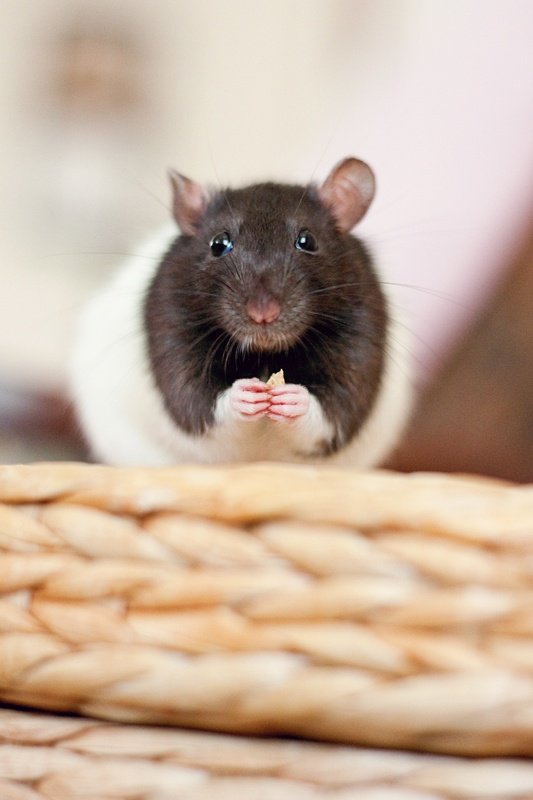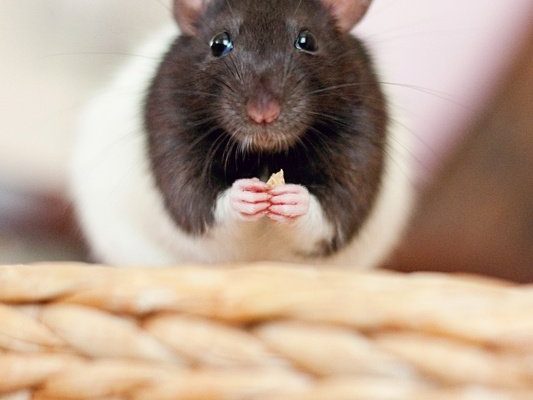
Hooded rats are quite popular among pet enthusiasts, and it’s easy to see why. With their striking appearance and engaging personalities, they can quickly become a cherished part of the family. If you’re curious about what makes hooded rats unique, you’re in the right place. Let’s break down their traits, appearance, and temperament—everything you need to know if you’re thinking about welcoming one into your home.
What Are Hooded Rats?
Hooded rats are a variety of domestic rats, specifically the *Rattus norvegicus* species. They get their name from the distinct coloration that resembles a “hood” on their heads. This doesn’t mean that every rat with a hood is the same, though! They come in various colors and patterns, making each one unique, almost like a little piece of art.
These rats are loved not only for their looks but also for their delightful personalities. They tend to be social animals and thrive on interaction with their owners and other rats. Imagine a tiny creature that’s just as curious about you as you are about it—that’s a hooded rat in a nutshell.
Physical Traits of Hooded Rats
In terms of physical attributes, hooded rats can vary quite a bit. They typically weigh between 250 to 500 grams (about half a pound to a bit over a pound) and can be 9 to 11 inches long, not including their tails. Speaking of tails, theirs are long and can be about the same length as their body, helping them balance when climbing or exploring.
Their fur, which can be short and sleek, is where the beauty truly shines. Common colors include agouti, black, and chocolate, while their hoods can be solid, spotted, or patched. This diverse range of colors means you can find a hooded rat that matches your aesthetic! Honestly, it’s like having a tiny fashion model in your home, strutting its stuff every day.
Temperament of Hooded Rats
Now, let’s talk temperament—this is where hooded rats really steal the show. They are known for being friendly, inquisitive, and playful. You might be wondering if they can be trained. The answer is yes! They can learn tricks, navigate mazes, and even respond to their names. Just think about the joy of watching your little buddy come to you when you call it!
These rats thrive on social interaction. It’s a good idea to keep at least two together, because they love to snuggle and play with one another. If you give them plenty of love and attention, they’ll return the favor tenfold. You might find them running up to greet you when you enter the room, or even curling up in your lap for a cozy nap.
Caring for Your Hooded Rat
Caring for a hooded rat involves more than just feeding it. Here are a few key aspects to consider:
- Housing: A spacious cage is essential. Look for one with multiple levels and plenty of room to explore. Also, add some cozy hiding spots for them to retreat to.
- Diet: A balanced diet includes high-quality rat pellets, fresh fruits, and veggies. Avoid sugary and fatty foods, as they can lead to health issues.
- Social Interaction: Spend time with your rats daily. They do best with regular handling and playtime outside their cage. Think of it like building a friendship—more time together means a stronger bond.
Common Health Issues
Like any pet, hooded rats can face health challenges. Here are some common issues you should be aware of:
1. Respiratory Problems: Rats are prone to respiratory infections, often due to poor ventilation or bedding. Keep their cage clean and dry to reduce this risk.
2. Tumors: Older rats may develop tumors, which can often be treated by a vet. Regular check-ups are essential.
3. Obesity: Because they love food, it’s easy for hooded rats to become overweight. Monitor their diet and ensure they get enough exercise.
By being aware of these issues and providing regular vet check-ups, you can help your hooded rat live a long and happy life.
Hooded Rat vs. Other Pet Rats
If you’re looking at different pet rats, you might wonder how hooded rats compare to other types, like dumbo or hairless rats. Here’s a quick breakdown:
- Hooded Rats: Known for their distinctive fur patterns, they are friendly and social.
- Dumbo Rats: Have larger, low-set ears and are often just as affectionate as hooded rats.
- Hairless Rats: Unique in appearance and can have a quirky personality, but they may require more specific care due to their lack of fur.
No matter which type you choose, remember that each rat has its own personality. Spend time with them before making a decision to see who you click with the most!
In summary, hooded rats are charming little companions that can bring joy and laughter into your life. With their playful nature, striking looks, and easy-to-care-for needs, they make excellent pets for both first-time owners and seasoned rat lovers alike. Just remember, like any pet, they thrive on love and attention, so be ready to invest some time with your new furry friend.
So, if you’re considering adding a hooded rat to your household, you’re in for a delightful adventure. They might just become your new favorite little sidekick!

